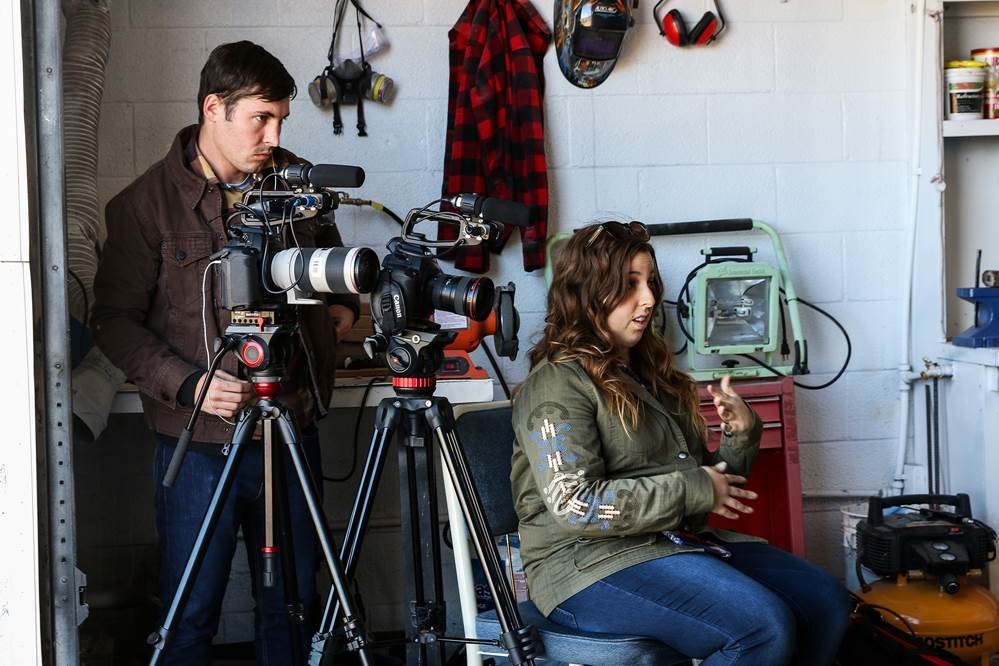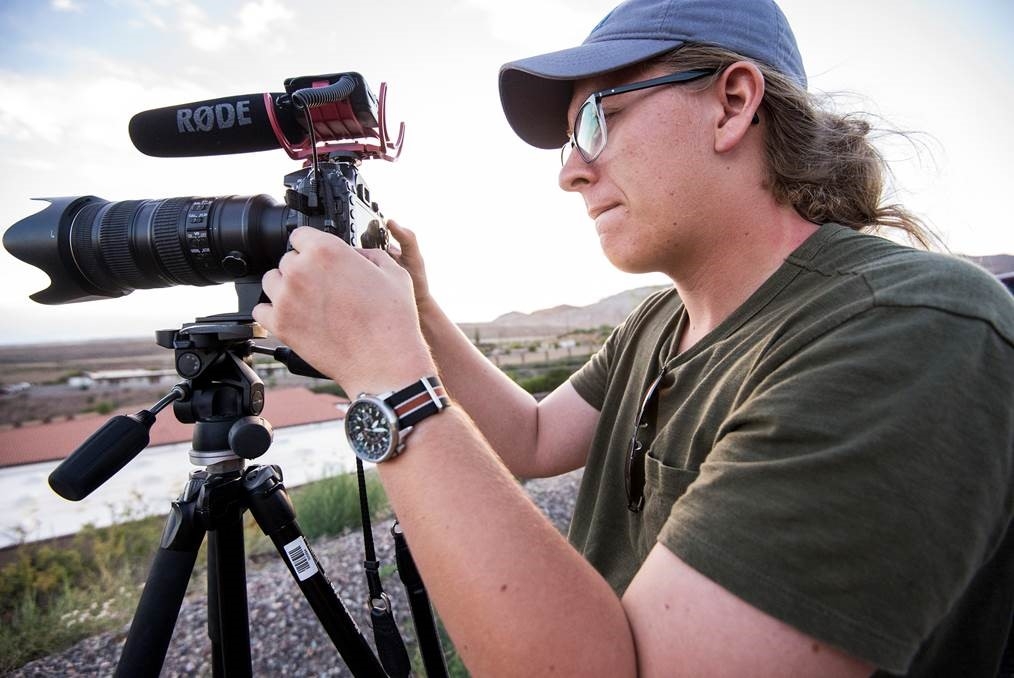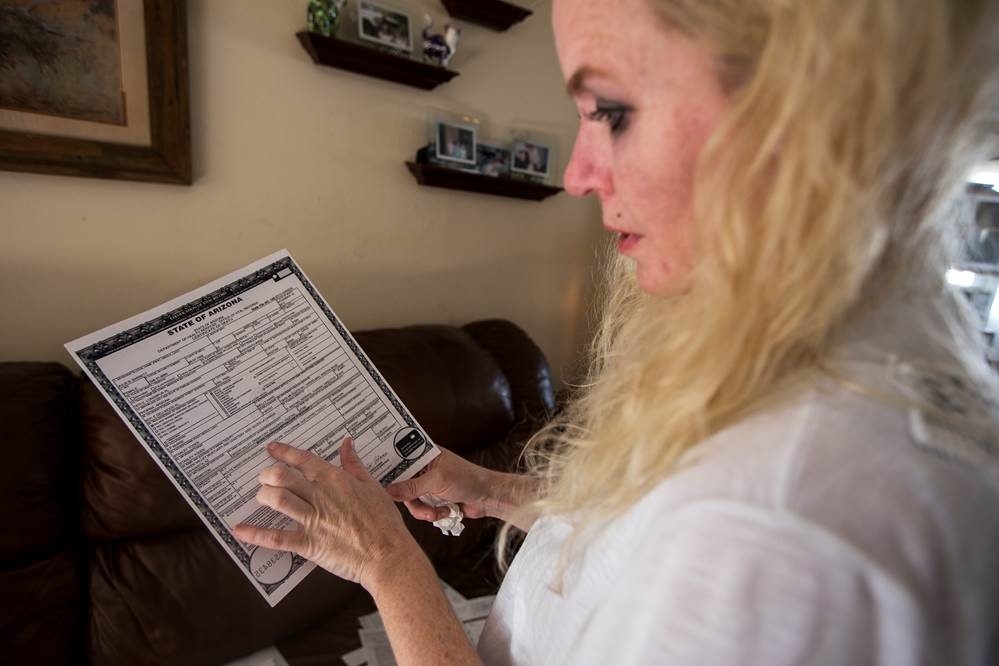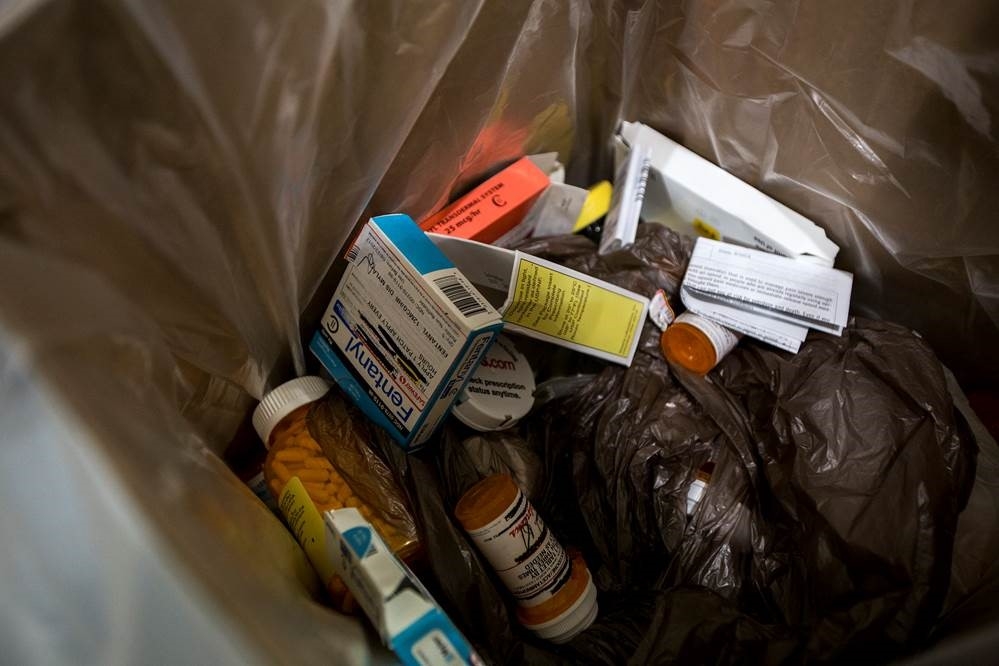Arizona TV, radio stations to air ASU-produced documentary on prescription drug abuse
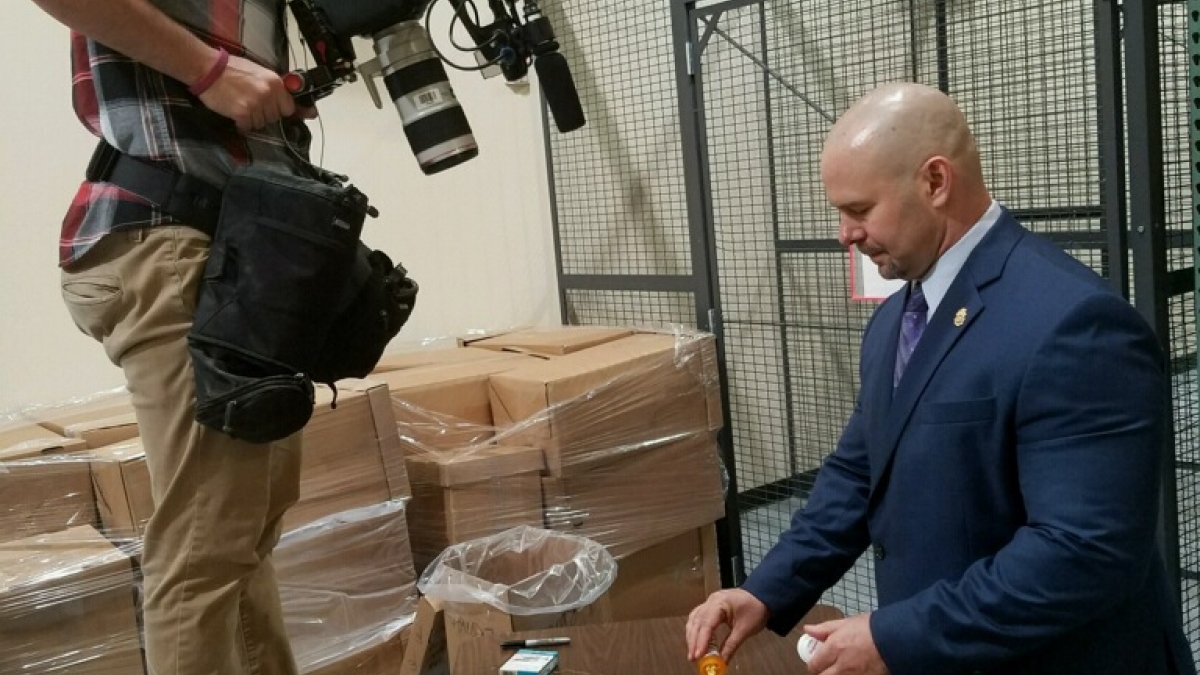
Cronkite School student Sean Logan shoots video of a DEA agent and prescription drugs for “Hooked Rx: From Prescription to Addiction,” a 30-minute commercial-free investigative report airing on 30 broadcast TV stations in Phoenix, Tucson and Yuma and 97 of the state’s radio stations.
Two years ago, Arizona State University students produced a statewide documentary on the perils of heroin that was watched live by 1 million viewers and won numerous honors, including the region’s top Emmy and a national Alfred I. duPont-Columbia University Award.
As a follow-up to their award-winning investigation, ASU students at the Walter Cronkite School of Journalism and Mass Communication are creating a special report on the alarming rise in prescription opioid abuse, which will air on every broadcast TV station and most radio outlets across Arizona in English and Spanish on Jan. 10.
More than 100 students under the guidance of over a dozen faculty members are working on “Hooked Rx: From Prescription to Addiction,” a 30-minute commercial-free investigative report airing on 30 broadcast TV stations in Phoenix, Tucson and Yuma and 97 of the state’s radio stations. The air time will be at 6:30 p.m. on most stations.
Cronkite News, the student-produced news division of Arizona PBS, in conjunction with the Arizona Broadcasters Association (ABA) is producing the documentary. The video of “Hooked Rx” and a series of multimedia stories will be available the evening of the showing at hookedrx.com.
“Hooked Rx” builds upon the first documentary “Hooked: Tracking Heroin’s Hold on Arizona” by uncovering the root of the heroin epidemic with in-depth interviews with recovering prescription pill addicts, law enforcement, government officials and doctors and public health experts.
“Through the first ‘Hooked,’ we learned that the heroin crisis is the result of the abuse of prescription pain medications,” said Christopher Callahan, Cronkite School dean and Arizona PBS CEO. “This is a state and national health issue that has reached epidemic proportions.”
According to the National Institute on Drug Abuse, part of the National Institutes of Health, unintentional poisoning deaths from prescription opioids quadrupled from 1999 to 2010, outnumbering those from heroin and cocaine combined.
“The No. 1 reason for this documentary is obvious,” said Art Brooks, ABA president. “We’re trying to save and change lives. We really hope this report starts conversations within families and communities about the depth of this crisis.”
During and after the telecast, the ABA will sponsor a call center for viewers seeking counseling on prescription opioid and heroin addiction. A 100-phone center with trained counselors will be set up in the studios of Arizona PBS on the sixth floor of the Cronkite School on ASU’s Downtown Phoenix campus.
Callahan said the Cronkite School is devoting a significant amount of its resources to “Hooked Rx,” which started production in August on broadcast, digital and new media content under the leadership of Cronkite News Executive Editor Kevin Dale. Cronkite Professor of Practice Jacquee Petchel, a Pulitzer Prize-winning investigative journalist is spearheading the production of the documentary.
“You, your family, your loved ones, your children, your grandchildren, even your grandparents are all susceptible to this kind of addiction,” Petchel said. “We are seeing addicts who are as young as 13 and others in their 40s or 50s whose addiction starts with some kind of injury or pain problem. This is clearly a life and death situation.”
Cronkite News students also are producing more than a dozen digital stories from across the state under the direction of Dale, Southwest Borderlands Initiative Professor Angela Kocherga, who co-leads Cronkite News Borderlands, Christina Leonard, director of the Reynolds Business Reporting Bureau at Cronkite News, and Petchel.
Another Pulitzer winner, Knight Chair Steve Doig, is leading a team of students who are analyzing Arizona emergency department data on overdoses, as well as census demographics to pinpoint the patterns and hot spots of prescription drug abuse.
Students are building a special website for the content under the guidance of Rebecca Blatt, director of the Cronkite News Digital Production Bureau. Ethics and Excellence professor of practice Jessica Pucci is working with students to develop a social media campaign for the project.
The Cronkite New Media Innovation and Entrepreneurship Lab, directed by Retha Hill, former vice president of Black Entertainment Television and a digital media pioneer, and her students are creating 360-degree videos on the story of a recovering addict and another on the areas where teenagers might hide drugs in their rooms.
In the Cronkite Public Relations Lab, students are working with Cronkite School professor of practice Mark Hass and faculty associates Sonia Bovio and Maddie Liseblad on a campaign to build awareness about opioid abuse. The PR Lab is partnering with the Arizona Governor’s Office of Youth, Faith and Family, which aims to create a brighter future for youth and families in Arizona. Students in the PR Lab also are utilizing Thunderclap, an online “crowd-speaking” platform to rally individuals around the issue.
The Cronkite Public Insight Network Bureau, led by professor of practice Theresa Poulson, is deploying its network to locate sources not previously tapped by journalists.
In all, Petchel said students have traveled across the state, talking with more than 100 Arizonans. “Our students are producing real-time journalism that stretches them beyond their comfort zone,” she said. “They are bringing a fresh perspective to a very important story.”
Cronkite senior Sean Logan, who serves as chief videographer and director for “Hooked Rx,” recently interviewed Arizona Gov. Doug Ducey for the documentary. Logan said it has been humbling and heartbreaking to hear how prescription drug abuse has taken its toll on individuals and families across the state.
“There needs to be more awareness about the prescription opioid epidemic in our state,” Logan said. “I wish the public could sit in on the full interviews because it shows how big of a problem this actually is and how it affects so much of our population.”
Logan was one of more than 70 students who worked on the groundbreaking “Hooked” documentary in fall 2014. Since airing, it has received numerous awards, including a duPont Award, which marked the first time a student project has won the award and just the third time in the then 74-year history of the contest that a Phoenix-based news operation has received the honor.
“Hooked” also received a prestigious Sigma Delta Chi Award from the Society of Professional Journalists and two of the region’s top professional honors at the Rocky Mountain Emmy Awards: an Emmy in the category of “Societal Concerns – Program/Special” and the Governors’ Award. It also took first place in video storytelling at the Arizona Press Club Awards.
Recently, “Hooked” won the National Association of Broadcasters Education Foundation’s President’s Special Award, a top honor from the NAB. The NAB also announced in September that it was launching a nationwide campaign to combat heroin and opioid addiction, in part as a result of the first “Hooked” documentary.
“We’re still getting calls and emails about the first ‘Hooked,’” said Brooks, who attended the NAB announcement in Washington, D.C. “They say it saved their son or daughter. It’s great to see that it’s still making an impact. We encourage Arizonans to once again tune in to watch ‘Hooked Rx.’”
The TV stations committed to the simulcast include:
• Phoenix DMA
• KAET-TV (PBS)
• KASW-TV (CW)
• KAZT-TV (IND) Prescott-Phoenix
• KKAX-TV (NBC) Kingman
• KNXV-TV (ABC)
• KPHO-TV (CBS)
• KPNX-TV (NBC)
• KSAZ-TV (FOX)
• KTAZ-TV (Telemundo: Channel 39.1 and TeleXitos 39.2)
• KTVK-TV (IND)
• KTVW-TV (UNIVISION)
• KUTP-TV (My45)
• Tucson DMA
• KGUN-TV (ABC)
• KHRR-TV (Telemundo: Channel 40.1 and TeleXitos 40.2)
• KMSB-TV (FOX)
• KOLD-TV (CBS)
• KTTU-TV (MyTV)
• KUAS-TV (PBS)
• KUVE-TV (Univision)
• KVOA-TV (NBC)
• KWBA-TV (CW)
• Yuma DMA
• KECY-TV (FOX)
• KESE-TV (Telemundo)
• KSWT-TV (CBS)
• KYMA-TV (NBC)
• NECY-TV (ABC)
• OECY-TV (CW)
• OSWT-TV (Estrella)
More Law, journalism and politics

ASU committed to advancing free speech
A core pillar of democracy and our concept as a nation has always been freedom — that includes freedom of speech. But what does…

ASU experts share insights on gender equality across the globe
International Women’s Day has its roots in the American labor movement. In 1908, 15,000 women in New York City marched to protest…

ASU Law to offer its JD part time and online, addressing critical legal shortages and public service
The Sandra Day O’Connor College of Law at Arizona State University, ranked 15th among the nation’s top public law schools,…


